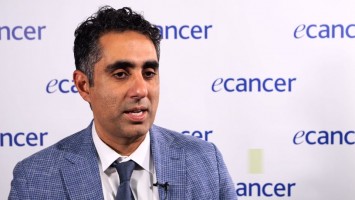We presented a study about the expectation and priorities of patients over 70 years old with cancer with first-line treatment of cancer.
What was the study design?
It was designed in two parts: the first part was a monocentric study led in 2016 in the Institute Bergonié Comprehensive Cancer Centre in France with 80 patients over 70 years old included in the study. The second part was a multicentric study in nine centres nationwide, including 227 patients of 70 years old and over and 100 patients which were the comparison cohort from 18-69 years old. We also registered the priorities of physicians. So we had three different cohorts and the patients were given self-administered questionnaires about their expectations and priorities.
The eight expectations that the patients had to rank to define their priorities were treatment efficacy, life expectancy, autonomy, daily tasks, social activities, burden of treatment, toxicity and economic burden.
What were the key results?
The results were on the four top priorities of patients. So we asked the patients among all the expectations what were the four most important expectations, which were their top four priorities. Treatment efficacy was the most cited priority for both older patients, cited in 94% of cases, and younger patients, cited in 96% of cases. Then for older patients the second most cited expectation was autonomy and for younger patients the second most cited expectation was life expectancy.
What do you think is the significance of these results?
This study was the first prospective multicentre cohort study specifically assessing the expectations and priorities of patients over 70 years old being treated for cancer in the real-life setting. So the top one priority of older patients, like younger patients, is treatment efficacy and then autonomy has a high importance among older patients whereas life expectancy was the second most important expectation in younger patients.
So, in clinical practice it meant that treatment goals must be discussed clearly with the patient at the start of treatment and regularly afterwards. For clinical research it is very important to involve older patients in the design of clinical trials in order to define objectives in line with their expectations and priorities. It is also important to include patient-reported outcomes in evaluation criteria in clinical research.








